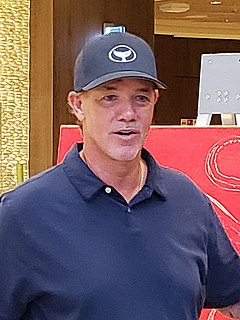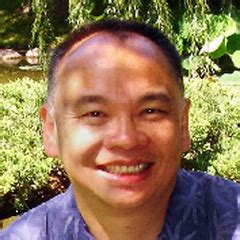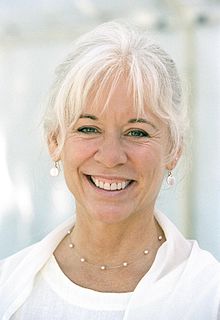A Quote by Noreena Hertz
Get into the habit of imagining an alternate scenario. By posing such 'imagine if' questions... we can distance ourselves from the frames, cues, anchors and rhetoric that might be affecting us.
Related Quotes
You can imagine over very long timescales, perhaps far beyond the multi-decade time scale, we might be able to ask very deep questions about why we feel the way we feel about things, or why we think of ourselves in certain ways - questions that have been in the realm of psychology and philosophy but have been very difficult to get a firm mechanistic laws-of-physics grasp on.
It's important to cultivate detachment. One way to do this is to practice imagining yourself dead, or in the process of dying. If there's a window, you must imagine your body falling out the window. If there's a knife, you must imagine the knife piercing your skin. If there's a train coming, you must imagine your torso flattened under its wheels. These exercises are necessary to achieving the proper distance.
Others of us are lost. We're forever seeking. We torture ourselves with philosophies and ache to see the world. We question everything, even our own existence. We ask a lifetime of questions and are never satisfied with the answers because we don't recognize anyone as an authority to give them. We see life and the world as an enormous puzzle that we might never understand, that our questions might go unanswered until the day we die, almost never occurs to us. And when it does, it fills us with dread.
To me, one of the most profound questions we can ask is: "So what?" And so what if there's an indefinite number of worlds with alternate "us-es" in them? The "so what," to me, comes alive when I ask myself: "What if I could find a way to get in touch with those alternate mes who made those choices?" That is, persons who, if I saw them now, I wouldn't even recognize because their choices, once small, have multiplied to make them such different people.
And that desire-the strong desire to take pictures-is important. It borders on a need, based on a habit: the habit of seeing. Whether working or not, photographers are looking, seeing, and thinking about what they see, a habit that is both a pleasure and a problem, for we seldom capture in a single photograph the full expression of what we see and feel. It is the hope that we might express ourselves fully-and the evidence that other photographers have done so-that keep us taking pictures.


































